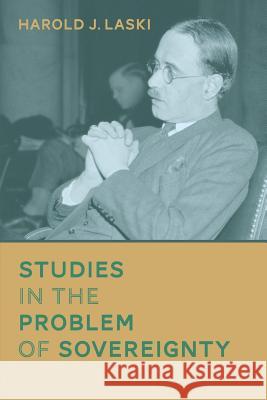Studies in the Problem of Sovereignty » książka
Studies in the Problem of Sovereignty
ISBN-13: 9781616194123 / Angielski / Miękka / 2014 / 312 str.
Studies in the Problem of Sovereignty
ISBN-13: 9781616194123 / Angielski / Miękka / 2014 / 312 str.
(netto: 82,73 VAT: 5%)
Najniższa cena z 30 dni: 76,91
ok. 16-18 dni roboczych.
Darmowa dostawa!
An influential study of political power. Originally published: New Haven: Yale University Press, 1917. x, ii], 297 pp. This volume (Laski's first) addresses aspects of the theory of the state, a topic he developed further in Authority in the Modern State (1919) and The Foundations of Sovereignty and Other Essays (1921). Laski's theoretical ideas are elaborated through examples drawn from recent political and religious movements, such as the Catholic Revival and the creation of the German Empire. He concludes that the state is not a supreme entity; it is one association among many that must compete for the people's loyalty and obedience.
Harold J. Laski 1893-1950] was a teacher, political scientist, and leader of the Labour Party. His ideas influenced the work of Felix Frankfurter and Oliver Wendell Holmes, who were two of his closest friends. His work also influenced Jawaharlal Nehru who would go on to become India's first prime minister.
An influential study of political power. Originally published: New Haven: Yale University Press, 1917. x, [ii], 297 pp. This volume (Laskis first) addresses aspects of the theory of the state, a topic he developed further in Authority in the Modern State (1919) and The Foundations of Sovereignty and Other Essays (1921). Laskis theoretical ideas are elaborated through examples drawn from recent political and religious movements, such as the Catholic Revival and the creation of the German Empire. He concludes that the state is not a supreme entity; it is one association among many that must compete for the peoples loyalty and obedience.
Harold J. Laski [1893-1950] was a teacher, political scientist, and leader of the Labour Party. His ideas influenced the work of Felix Frankfurter and Oliver Wendell Holmes, who were two of his closest friends. His work also influenced Jawaharlal Nehru who would go on to become Indias first prime minister.











